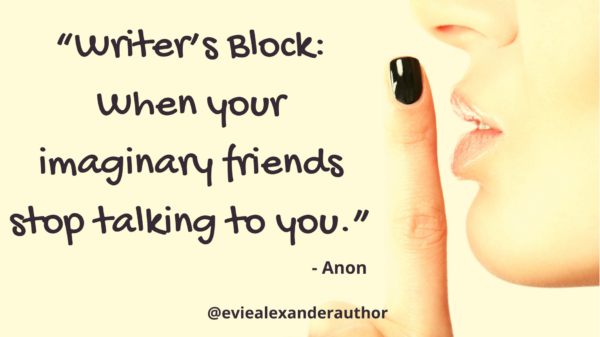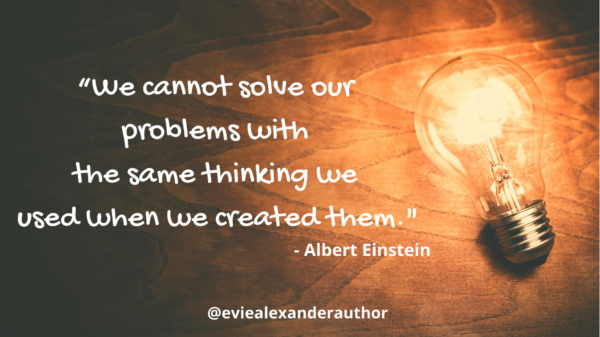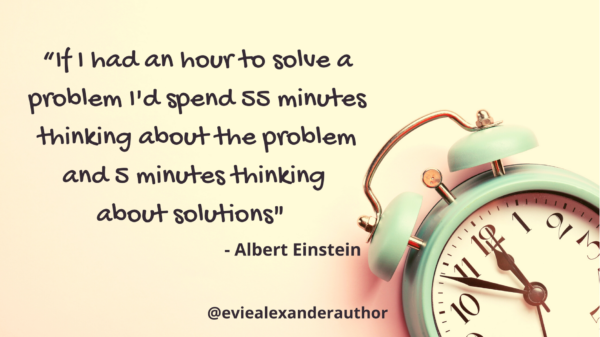
On writers block
You know your characters, you love them, and then they turn their backs on you and give you the cold shoulder. Suddenly you no longer know what they’re going to say or do. Writer’s block is where you simply don’t know what is coming next in your story or how to get around a problem. So what to do? How can you get over writer’s block?
I believe that writer’s block doesn’t come from your inability to find a story, it comes from other stories getting in the way. These are the stories that run our lives, the insidious white noise of insecurity and doubt. Most of us have been programmed in some way to question our own ability or worth. It may have been by a parent, a school teacher, or a bully. It may have resulted from a poor diet, drug taking, or enslavement to societal beauty norms that are unreal and unattainable.
I believe that writer’s block doesn’t come from your inability to find a story, it comes from other stories getting in the way. These are the stories that run our lives, the insidious white noise of insecurity and doubt Share on XThese unconscious stories run deep. Often it can be a seemingly tiny trigger that sets our insecurities off; the way a stranger looks at you in the street, a bad review online, something that you should be able to brush off. But your buttons have been pushed, and now you’re reacting disproportionately to it.

Writers frequently have writer’s block with their second book – that ‘difficult second album’ syndrome. Their first book comes out and is a huge success. Yay! Now everyone wants a second, but can they repeat the magic for their sophomore effort? Or maybe their first book comes out and it’s a total failure. Boo! How do they then pick themselves up and start again? There can be so many reasons for writer’s block, so if you’re suffering from it, it’s important to sit down and try to work out why.
Maybe the book you’re working on is fundamentally flawed? After writing The Hating Game, Sally Thorne told her readers the next book would be called ‘The Comfort Zone’. But the book never got written. On her website she explains:
“In the back of some copies of The Hating Game there was a snippet of an upcoming novel by me called The Comfort Zone. I’m asked a lot what happened to this book! I didn’t end up completing this project- it just wasn’t cooperating- and so it won’t be published.”
Sally Thorne
Maybe the project you’re working on just needs time to sort itself out in your unconscious mind. Sometimes when we’re so close to something we just can’t see the wood for the trees. Nobel Prize laureate Otto Loewi dreamed about the experiment which would prove his idea that nerve impulses are chemically transmitted, and Frankenstein author Mary Shelley came up with her idea after experiencing a vision of Victor Frankenstein’s monstrous creation lying stretched out on a table. If it just isn’t working, take a break, put it in a drawer and let your mind focus on something else.

Also consider how you are approaching your writing. In his book, ‘Lateral Thinking’, Edward de Bono demonstrates that we spend too much time measuring how right or wrong a solution is, rather than examining how we made it in the first place. When I have a block in my writing I often skip the scene altogether and write around it. And if I think I’m going to get stuck somewhere, I leave a sentence or a paragraph half finished, so I know I can pick it up easily when I come back and that will hopefully give me the momentum I need to keep going.
If you don’t want to put your project away for a time, or change your thinking, maybe you could change how you look at the issue itself to cure writer’s block. Spend time with the problem and look at all possible outcomes, no matter how crazy they may seem. When I was rewriting the end of Highland Games, I went back and forth with my editor and fellow authors to try and find a solution that worked. We came up with so many different ideas and I even went as far as writing some of them, even though most never saw the light of day. It was a frustrating process for me, but it enabled me to come up with a completely different solution that worked better than I could have hoped for.

People who are good at solving problems stay with a problem, examining many different solutions until they find a way forward. The bigger the struggle, the more resilient they get, and the easier it is to solve problems in the future.
Persistence and mindset are the keys to overcoming writer’s block. I had written for years before I completed my first novel, but it was only after I went through a huge change in my psyche, and I started writing every day that the words started to flow, and within four months I had written nearly 200,000 words.
How to overcome writer’s block
- Change your mindset. Work out what negative script your unconscious mind is reading from, and change it.
- Change your approach to problem solving. Figure out if there’s a better way to look at the issues you’re facing.
- Talk it over with a friend or colleague.
- Take a break. Go for a walk and get the blood and hopefully ideas flowing.
- Make sure you are getting enough sleep.
- Write around the problem. Leave the scene and write what’s coming after it.
- Persevere. Set yourself time slots of 20 minutes with no distractions to focus on the problem, then take a five minute break, then work again for another 20 minutes.
- Consider letting the project sit in a drawer for a few days or months and work on something else.
Maybe the project you’re working on needs to be put permanently on the back burner, although this is unlikely. Whatever the reason for your block, know that you’re not alone – even the biggest names in the writing game suffer from the occasional dry patches of inspiration or periods when their muse seems to desert them. Your stories are still inside you, waiting to come out. It may take time, or it may take persistence, but know that you’ll get there.





